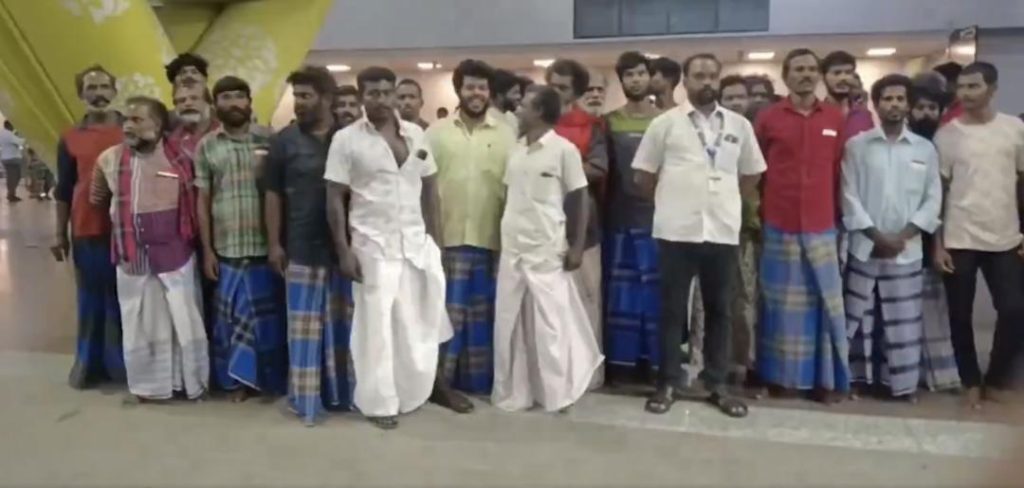
27 Indian Fishermen Released from Sri Lanka Jail Reach Chennai
In a welcome move, 27 Indian fishermen who were arrested by the Sri Lankan Navy on February 23 have been released and have arrived at Chennai airport on Thursday. This development comes as a relief to the families of the fishermen who were detained for violating the International Maritime Boundary Line (IMBL) between India and Sri Lanka.
The 27 fishermen, who were detained by the Sri Lankan Navy, were part of a group of 32 mechanized boats that were caught off the coast of Sri Lanka. The fishermen, hailing from Ramanathapuram district in Tamil Nadu, were arrested for allegedly fishing in Sri Lankan waters.
The Indian government had taken up the issue with the Sri Lankan authorities and had urged them to release the fishermen as soon as possible. The Centre had also received representations from various fishermen associations, including the All India Fishermen’s Welfare Association, who had urged the government to take immediate action to secure the release of the detained fishermen.
The release of the 27 fishermen is seen as a positive step towards improving relations between India and Sri Lanka. The two countries have had a long-standing issue over fishing rights and border patrolling, which has led to several instances of Indian fishermen being arrested and detained by the Sri Lankan Navy.
The issue of Indian fishermen being arrested by the Sri Lankan Navy has been a recurring one, with many fishermen from the southern states of Tamil Nadu and Kerala being detained over the years. The fishermen have been accused of fishing in Sri Lankan waters, which they deny, saying that they have been fishing in their traditional waters for generations.
The Sri Lankan Navy’s actions have been criticized by many, with some accusing them of being heavy-handed and disproportionate. The Indian government has also criticized the Sri Lankan Navy’s actions, saying that they violate international norms and conventions.
The release of the 27 fishermen is a welcome development, but the issue of Indian fishermen being arrested by the Sri Lankan Navy is far from over. The Indian government needs to take a more proactive approach to address this issue and ensure the safety and security of Indian fishermen who venture into Sri Lankan waters.
The Centre also needs to work towards finding a long-term solution to the issue of fishing rights and border patrolling between India and Sri Lanka. This could involve increasing cooperation between the two countries, including through joint patrols and the establishment of a joint mechanism to prevent incidents of fishermen being arrested.
In the meantime, the release of the 27 fishermen is a relief to their families, who have been waiting anxiously for their loved ones to return home. The fishermen’s release is also a testament to the good relations between the Indian and Sri Lankan governments, who have been working together to resolve the issue.



